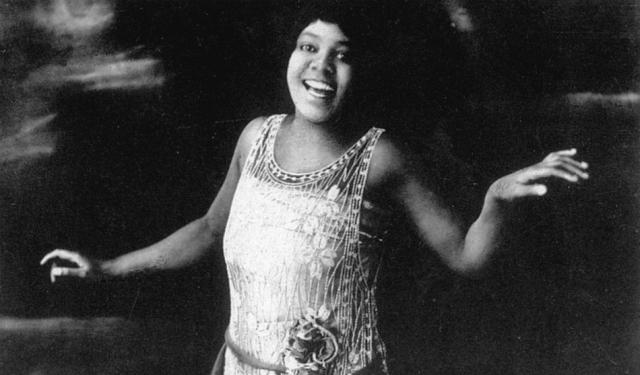“Long may it stay a mystery,” said Keith Richards, the first talking head seen in this opening shot of a two-part excursion through blues music. Self-evidently, two hours devoted to this oft-explored subject wasn’t going to leave too many mysteries. Woke Up This Morning did tread new ground though – at least for British television – by recalibrating perceptions of authenticity and motivation.
Big Bill Broonzy had made his name in Chicago, where he was seen as a sophisticated and urban performer. For his 1938 New York debut, he allowed himself to be portrayed as fresh from an Arkansas farm. The man behind that marketing was John Hammond, who would go on to sign Bob Dylan and Bruce Springsteen. The concert, From Spirituals to Swing, was sponsored by the American Communist Party who, in 1936, had officially declared blues “the voice of the proletarian black”. Broonzy’s habitual suit stayed on the hanger.
Woke Up This Morning caught the commercial demands and compromises which swirled throughout blues moments after W.C. Handy came across the music in Mississippi in 1903. A musician and bandleader, he was soon scooping up the publishing rights to the songs of the musicians he had encountered. While Handy became the self-declared “father of the blues”, the music evolved to fit the means which brought it audiences.
Was topping and tailing with The Rolling Stones really what blues music is about?
At its core though, the programme was a brisk, efficient run through the canon as it’s currently configured. Bessie Smith, Blind Lemon Jefferson, Charley Patton, Robert Johnson, Leadbelly and Muddy Waters were name-checked. Landmarks like Perry Bradford’s 1920 breakout hit “Crazy Blues", Smith’s rise as the first star (black women were acceptable on stage, in a period when men had to be neutralised as figures of fun) and Count Basie’s injection of swing into blues were notched up over the hour. The entrepreneurs Handy and H. C. Speir were acknowledged. White devotees Alan Lomax and Hammond were given their due, whatever their motives.
Legends and myth were sidestepped. Instead of trotting out the story of Johnson meeting the devil at the crossroads, he was portrayed as the first synthetic performer of the blues – his music drew on all strains of the music and could not be identified with any particular region.
Despite the sharp agenda, Woke Up This Morning felt quite hard to follow. There were – as always – too many pundits with snippets of commentary which weren’t essential. The time line hopped about. Inevitably, 60 minutes on so massive a subject had many names and it was hard to take them all in. A taster, it was an entry point which whetted the appetite. It also lacked atmosphere. Seek out the early episodes of Tony Palmer’s All You Need Is Love: The Story of Popular Music (broadcast in 1977) on DVD for a fuller taste of the era.
The programme itself ended with Waters moving to Chicago in 1943 and his adoption of the electric guitar – he needed it to be heard above the noise of crowds. But there was more. Woke up This Morning opened with a Rolling Stone and ended with their "(I Can't Get No) Satisfaction" playing over the credits. Part Two will presumably plug the gap between that and Waters’ electrification. Was this topping and tailing really what blues music is about?















Add comment